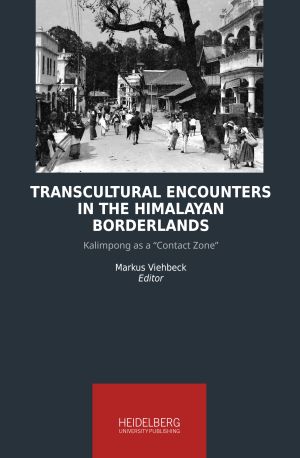Zitationsvorschlag
Lizenz (Kapitel)

Dieses Werk steht unter der Lizenz Creative Commons Namensnennung - Weitergabe unter gleichen Bedingungen 4.0 International.
Identifier (Buch)
Veröffentlicht
Kalimpong as Fiction or Ethnography? Gorkha/Nepali Sensitivities in the Himalayas
Abstract Whether produced as an ethnographic account or a fictional narrative, Kalimpong is ultimately subject to the problematics of representation. It is, after all, at the interstices of history, ethnography, literature, and the scientific discourses employed in the service of governmentality, that we find the production of subjectivities, catalogued communities, and an emergent politics of resistance. This essay is an attempt to look at the difficulties in reading/writing this place in the optic of the two traditions of imaginative literature and ethnography, and of a monstration recounted through the prism of a particular novel. Inseparable from this is the terminological difficulty inherent in forging Nepali or Gorkha identity. This is evident in the production of rather unwieldy devices indicative of some distance from the historical homeland of Nepal in the form of lexicons such as Indian-Nepali, नेपामुल भारतीय (Nepamul Bharatiya), भारतीय-गोर्खाली (Bharatiya-Gorkhali) or भरगोली (Bhargoli). Gorkhaness has increasingly become synonymous with Indian Nepaliness, but only invests in degrees of differential commonalities with Nepaleseness and diasporic Nepaleseness. While this counters the irredentism of a Greater Nepal thesis, it cannot completely exorcise the seductive spectres of ethnic absolutism for diasporic subjects. Rather than just looking at the work of “Nepali” writers who narrate Gorkha subjectivity as it attempts to relocate itself within the matrix of the Indian nation, riddled as it is by ethno-nationalist demands, including the continuing cry for a Gorkhaland, this essay instead focuses on the question of reading/writing (itself a practice) in Kiran Desai’s Booker winning The Inheritance of Loss, a novel which, penned by a dialogically cosmopolitan writer, became notorious for its narration of a post-1980s Kalimpong in flux.






